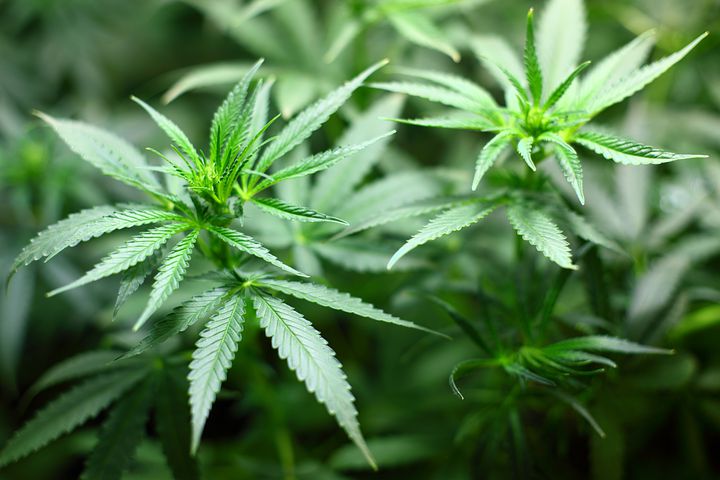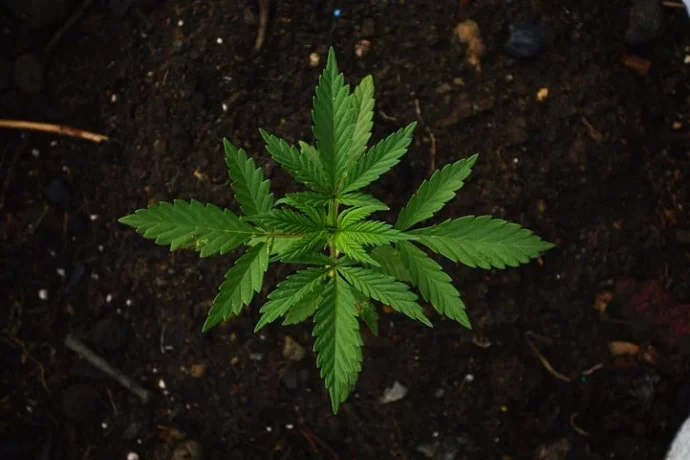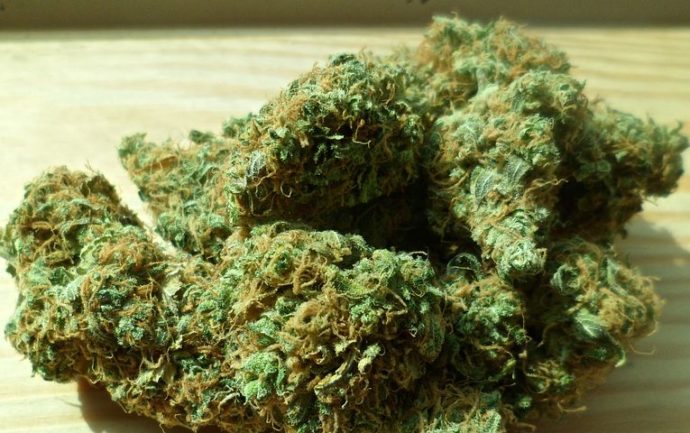For the longest time, many considered marijuana a non-addictive substance. It is widely believed that it is a soft drug, unlike controlled substances like cocaine. As states continue to legalize the use of medical and recreational marijuana, this belief spreads.
However, marijuana, just like any other thing, can be addictive with frequent use. Recent studies show evidence that links marijuana use with certain medical after-effects.
According to the CDC, marijuana is the most widely used illicit drug in the United States. In terms of use, it is preceded only by nicotine and alcohol in the world. The CDC also records that one in ten Americans who use marijuana will develop an addiction. The occurrence increases if you start using marijuana before 18 years of age.
Symptoms Of Marijuana Withdrawal
A study shows that marijuana withdrawal is associated with cannabis withdrawal syndrome and occurs with discontinuation of long-term use. The prevalence of cannabis withdrawal syndrome is about 47% in regular users.
Symptoms of marijuana withdrawal will typically show in people that make regular or dependent use of marijuana. The American Psychiatric Association describes these symptoms.
Frequent use of marijuana can lead to cannabis dependence whereas frequent use of CBD flower buds has no or low adverse effects. Thus stopping can cause withdrawal. Often, withdrawal happens when addiction sets in. Marijuana withdrawal may not be life-threatening, but it has negative consequences. Marijuana withdrawal can also be very unpleasant and disruptive.
As earlier mentioned, studies tie discontinued use of marijuana to various cognitive and psychological declines. Additionally, the frequency of use determines the range of symptoms you may experience. Daily marijuana users are more likely to experience more withdrawal symptoms. Usually, withdrawal symptoms kick in within the first week of disuse and may last up to two weeks.
The symptoms of marijuana withdrawal include:
- Marijuana craving
- Sleep difficulty (insomnia)
- Irritability and increased anger
- Nervousness/anxiety/restlessness
- Strange dreams or nightmares
- Decrease in appetite and weight loss
- Headaches and general malaise
- Cold sweats
- Feeling of depression
- Loss of focus
- Abdominal pain
- Nausea
- Mood swings
- Thirst and dry mouth
One can diagnose cannabis withdrawal symptoms if at least three occur within the first week of quitting. These symptoms, mild to severe, occur differently with each person. However, the severity and duration of them depend on various factors.
Dependence level, amount of marijuana use, medical conditions, and stress may affect severity. Findings suggest that women are more likely to experience more aggressive symptoms than men. However, we need more research to confirm that.
How Does Marijuana Cause Withdrawal?
Marijuana is a subspecies of the Cannabis plant, which is widely known for the “high” feeling it gives when used. Though marijuana is considered a “soft drug,” it still contains enough THC to be psychoactive. THC is what is responsible for the potency of marijuana. The higher the THC content, the stronger the effects of marijuana.
Frequent use of marijuana means you are constantly supplying THC to your brain. Eventually, your body gets used to the regular supply of THC; it develops a dependence on it. The body’s natural receptors take a backseat and rely on the external supply.
However, when you withdraw this external supply for some time, the body is left with nothing. Your body eventually falls back into its natural supply store, but the chemicals will not pick up immediately. Thus, uncomfortable withdrawal symptoms will occur during this drought period. The symptoms can be so bad that some may return to smoking marijuana.
Once your body can adjust without the external supply of THC, the physical symptoms will recede and eventually stop. However, some people may still experience psychological symptoms like marijuana cravings.
Timeline Of Marijuana Withdrawal
Researchers have established a general timeline that can be expected with marijuana withdrawal. Typically, the symptoms begin within the first week of discontinuation, after which they will peak in ten days. Over the next 10 to 20 days, the symptoms begin to decline. However, if you start using marijuana again, the symptoms will decline much faster.
Research shows that brain receptors will begin to return to normal after two days of quitting. Within four weeks, they will regain regular function. The actual severity and duration of symptoms vary from person to person.
It is not uncommon to experience cravings, lethargy, mood swings, and mild anxiety and depression after recovering from withdrawal. In such cases, you must opt for online depression counselling. Some may experience these symptoms months after recovery.
Although the withdrawal process is not life-threatening, the symptoms can lead to fatality. Feelings of depression can lead to suicidal thoughts. Additionally, loss of focus can be dangerous when driving. Thus, you must discontinue marijuana use under the supervision of a healthcare professional.
The relapse rate is also high in people dealing with frequent marijuana use. Unfortunately, it takes less time to relapse into use than to recover from it.
Management And Prevention Of Marijuana Withdrawal
The discomfort those experiencing withdrawals go through can stop them from quitting. Research shows that around 70% of people that quit marijuana use relapse to relieve the symptoms. Thus, we advise that you seek professional help before quitting marijuana. Consulting someone about your decision is a good way to gain accountability and support. Problematic marijuana use will certainly need the help of a support center.
There are different ways of quitting marijuana use. You can choose to taper off gradually or quit cold turkey. You might gain from gradually tapering off if you are a frequent user. As a non-frequent user, quitting cold turkey might be easier. However, a detox tea is the best recommendation for marijuana withdrawal.
A study has shown that mixing cognitive behavioral therapy with motivational enhancement therapy can help. Using both methods, you can decrease marijuana use without increasing withdrawal symptoms.
Regardless, when you are ready to quit, taking special care of your body is important. Some ways that may help ease withdrawal symptoms include:
- Eating a healthy, balanced diet with lots of vegetables and fruits
- Avoid sugars and junk food as they can make you feel worse
- Drink plenty of water as thirst is a major sign of withdrawal
- Exercise as often as possible to boost mood and sweat out toxins
- Seek support from family members and loved ones.
Medication-Assisted Treatment For Marijuana Withdrawal
Although the FDA has not approved any medications to treat marijuana withdrawal, some may help. Specifically, medications targeting the brain’s part that secretes dopamine can help. These medications may help alleviate the specific symptoms of withdrawal.
They include zolpidem and gabapentin, which may help people with sleep difficulties. Buspirone may also help to calm anxiety and irritability during withdrawal. It is important to note that these medications have various side effects.
Dronabinol, a synthetic THC, is a common choice to help withdrawal. Other researchers think CBD might help withdrawal symptoms. Nabiximols, such as Sativex, may also help reduce the severity of irritability, cravings, and depression. Other drugs for cannabis may also help reduce cravings during withdrawal. You may also need anti-anxiety, antidepressants, and analgesics.
As mentioned earlier, these medications can only help the symptoms of withdrawal. It would help if you used them based on the particular symptom one experiences.
When To Get Help For Marijuana Withdrawal
Marijuana withdrawal symptoms may not be fatal, but a relapse may be imminent. Marijuana withdrawal syndrome is a common occurrence in such cases. Many users eventually turn back to marijuana when they experience withdrawal symptoms.
You may choose to quit or detox on your own. However, it is important to consult a physician if you experience prolonged symptoms. It would help if they properly assess extended paranoia and hallucinations.
Generally, these are some signs that tell if you have marijuana use disorders:
- Spending a lot of time using marijuana
- Using more quantity than you intend
- Using it in risky situations
- Getting into trouble due to use
- Constantly craving it
- Having withdrawal issues when you discontinue use
Fitting into at least two of these criteria may mean having cannabis use disorder. Especially with withdrawal, it becomes crucial to seek help at this point.
Some users experience extended cases of withdrawal, sometimes spanning into months. It is known as Post-Acute Withdrawal Syndrome (PAWS) and requires professional help to treat it effectively.
Seeking Help For Marijuana Withdrawal
Getting guidance and medical help when you have decided to quit can keep you from relapsing. If your symptoms last more than a few weeks, consult your physician. These are some useful resources that may help you in your journey:
Detoxification Center
This short-term program will help you through your first withdrawal phase. It is designed to help you manage withdrawal symptoms and provide medical aid.
Inpatient Rehabilitation Center
This is designed for people with psychiatric disorders, problematic marijuana use disorder, and social anxiety. They typically assist you for more than twenty-five days, offering thorough care in a structured environment. However, most people experiencing withdrawal symptoms may not need inpatient services. Also, inpatient care may help to treat the underlying cause of marijuana use and other forms of drug abuse.
Outpatient Therapy
Outpatient programs typically do not involve you checking into a facility. However, treatment-seeking cannabis users must have consistent sessions with a mental health specialist.
Support Groups
Support groups are a useful way to find and connect with people with the same conditions as you. You can find online or physical support groups to help you build accountability in your journey.
One-on-one therapy is also helpful in getting to the root of marijuana use.
Negative Effects Of Marijuana
The CDC links marijuana use to some negative health consequences. A few of them are increased risk of heart disease and stroke, anxiety, and memory problems.
Additionally, early exposure to marijuana can lead to mental disorders and severely impair mental and cognitive functions. Altered reward systems and trouble with learning, retention, and memory can stem from early marijuana exposure. In addition, early marijuana use may cripple decision-making abilities in teens and adolescents.
Motor functions are not left out, as they can be seriously impaired with marijuana usage. Moreover, frequent cannabis smokers create an obvious risk to their lung health. The flowers of the cannabis plant contain carcinogens that can damage the tissues of the airways. In addition, prolonged smoking may lead to bronchitis and lung infections. Studies also show that marijuana and its resultant effects result in a decrease in quality of life.
Complications Of Marijuana Withdrawal
As mentioned earlier, marijuana withdrawal may not be fatal, but one of the major dangers is relapsing. In addition, complications can occur from regular symptoms.
Thirst and dry mouth are one of the major symptoms of withdrawal. Nutrients needed to ensure optimal health are certain to deplete when dehydration sets in. In prolonged cases, extreme dehydration may lead to seizures that can be fatal.
Frequent smokers with existing heart conditions may also be at a higher risk for a heart attack. Marijuana increases heart rate and makes it pump harder. It is important to note that medical cannabis patients may not experience withdrawal symptoms. This is because they buy regulated cannabis, which is lower in THC.
Conclusion: Marijuana Adverse Effects
Is marijuana withdrawal a real thing? Yes, because marijuana, just like many other drugs, can cause dependence. Dependence on a drug means that your brain now relies on the external provision of that drug. Thus, quitting it will trigger withdrawal symptoms in the brain.
Marijuana withdrawal syndrome is what occurs with continued disuse of marijuana. Withdrawal symptoms include sleep disturbances, anxiety, thirst, depression, craving, and irritability. You must note that you can treat some of these behavioral symptoms in an outpatient setting.
However, others would require an inpatient setting for proper treatment. Generally, many of these symptoms would die down within 72 hours of quitting, but some may not. You can effectively manage marijuana withdrawal symptoms by seeking proper help and care. Certain drugs may help relieve the symptoms of withdrawal. Ensure to speak to your healthcare provider before taking any drugs.







